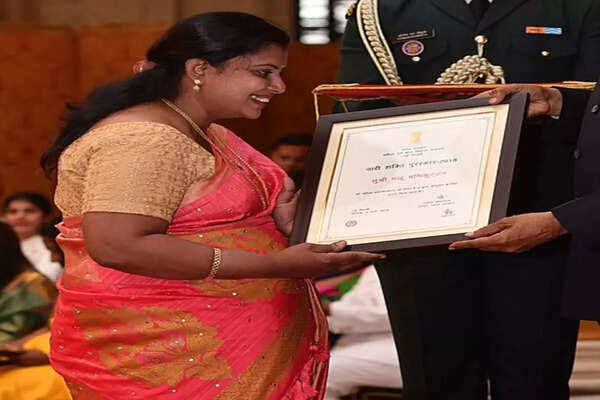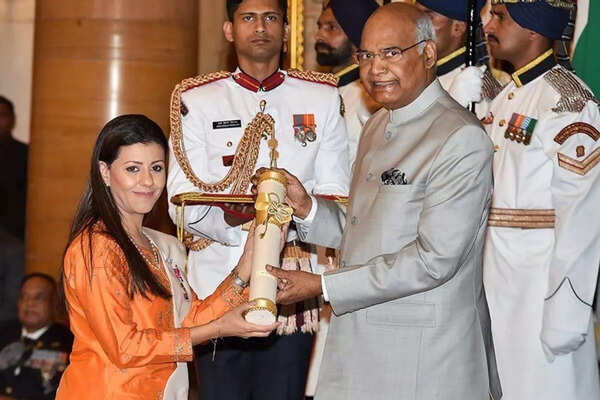World News
From Kerala to State: Untold stories of conservative women in Saudi Arabia. world News

TL; Dr:
- 2.6 million contributes significantly to Indians
Saudi Arabia Economy of the economy. Rising leadership and SME ownership with women’s workforce participation from ~ 23% to ~ 35–36%.
- Continuing obstacles such as Saudalization, legal friction and cultural prejudices still limits full migrant female participation.
Extension of Indian presence in the state
- Indian migrant populationAccording to the Indian Ministry of External Affairs (Mea 2024), 2.59 million Indians live in Saudi Arabia, which make them the largest migrant groups.
- Expansion: General Authority for Statistics Saudi Arabia (Gastat) also confirms that in 2024 there is an account of exits for 44.4% of the total population of about 38 million state.
- Labor power reality: Migrants have 56.5% of the total employment, and remarkably, 89% of private sector jobs are filled by non-forefathers.
India -born employees dominate major areas: construction, healthcare, retail, hospitality and now fast technology and education.
Vision 2030 And women’s workforce trailblasing
- Women’s labor force jump: According to Gastat, Saudi Women’s Working Participation increased from 23.2% to ~ 34–36% by 2022-2024 in 2016, more than 30% target of Vision 2030.
- Leadership and entrepreneurship: More than 78,000 women issued 551,318 businesses, 551,318 businesses, and around 450,000 freelance permits in 2023.
- Discrimination and autonomy: Women acquired equal pay law, ability to drive (2017), protection against harassment, and right to travel, without any male patrons.
System Improvement: Equipment Empowerment Exites
Saudi has introduced strong labor programs for expats, which greatly benefit women:
- Musan (2014): A digital, standardized contract system implemented through licensed agencies ensures a channel to register transparency, clarity in wages and complaints.
- Kiva and Labor Reform Initiative (2021): These platforms improve employer-employees relationships, apply contracts, facilitate mobility, and make health insurance and heat-protection mandatory.
- Bilateral labor agreement: Bilateral agreement such as India-Saudi cooperation enables information-sharing and investigating labor practices, reduces mismatch and exploitation.
Human stories in headlines
Manju Manikutan (Kerala → Al Khobar)

Manju Manikutan gains Nari Shakti Puruskar/image: Wikipedia
- profile: Saudi moved to Saudi as a beautician in 2011; Now a famous social worker through Navayam.
- Effect: After the death of the mentor, the women’s exile captured the center. Hundreds of Indian women workers misled domestic jobs under uncertain conditions.
- Recognition: In 2019, she became the only non -resident woman who was awarded the Nari Shakti Puruskar at Rashtrapati Bhavan.
- Remarkable rescue: Help “Chandrika”, an accountant took a dip in domestic work until she makes a safe return to India.
- legacy: Officially authorized by the Indian Embassy and supported by Saudi authorities at the exile center of Damam which reflects their deep roots credibility.
Noof al -Marawai (Saudi → Indian-recognized vision)

Nuf al -Marwai 2018/Padma Shri is receiving in image: X
- profile: Saudi National who founded the Arab Yoga Foundation in 2010. He led the acceptance of the mainstream of yoga in KSA.
- Effect: 700+ trainers were certified and trained by more than 10,000 doctors by 2019.
- Respect: In 2018, India’s Padma became the first Saudi woman to receive the Padma Shri for cross-cultural welfare contribution.
- Importance: His visit highlights the initiative of female-numbered initiatives in Saudi Arabia and the increasing acceptance of cultural bridges.
Emerging opportunities for women
Indian women are now entering various, meaningful roles:
- Beyond domestic labor: Extension in hospitality, healthcare, finance, education, IT and STEM areas.
- Development area in 2025: Renewable energy, digital change, healthcare expansion, tourism (NEOM, gig-projects), fintech, construction and education are hotspots.
- Protection and support: Women-cavalry transit, childcare, compulsory health insurance, summer-hour rules and anti-harassment laws ensure a safe environment.
Challenges: navigating gaps and headwinds
Despite the progress, obstacles persist:
- Saudnakkaran: Saudi reduces access to the extent of preference recruitment for Saudi citizens in the private sector, which affects women skilled in IT and corporate roles.
- Gender and nationality bias: Reddit voices echoed that expat women face hard competition for corporate roles as Saudi is given priority.
- Legal outline versus execution: The World Bank highlights although legal reforms are strong (score 50/100), implementation mechanisms such as childcare, parents’ holiday, and financial inclusion need to be strengthened.
- Continuous discrimination and uneven network: Excits still struggle with opportunities for prejudice, low salary, or low promotion compared to local people.
what lies ahead:
- Regulated security net: Platforms such as Musin and Qawa, and Embassy-supported advocates such as Manju provide solid security and recurrence.
- Diverse career path: Women can make a career in new areas; Stem gigs, digital health, education roles, hospitality, entrepreneurship and wellness (eg, yoga studios).
- Inspiration and purpose: Stories of women like Manju show that expat women can lead, innovate and recognize.
- Alignment: Saudi’s economic diversification means that the demand for skilled female talent is especially increasing in Giga-Provide and Tech Ventures.
- Assistant ecosystem: Infrastructure (women’s-level transport, childcare), legal safety and bilateral agreements are in place, although the bridging interval is important.




